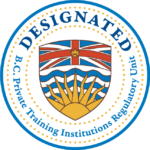Here are seven Indigenous filmmakers located across Canada that you need to explore!

By: Sophia Lin
With National Indigenous Peoples Day around the corner, we are spotlighting some of the incredible Canadian Indigenous filmmakers in the business today. Working as directors, producers, screenwriters, and actors, these talented artists have lent their skills and unique voices to some of the best work in Canadian film.
1. Tracey Deer
Tracey Deer is a Mohawk director and screenwriter. In her words, she seeks to better the world “one frame at a time.” Her feature film Beans (2020), is a coming-of-age tale set during the Oka Crisis. Recently, it was screened and honoured at the Toronto International Film Festival.
Additionally, her work was screened at the 2010 Vancouver Olympics. As well, she has been broadcasted on CBC. With her own production company, Mohawk Princess Productions, Deer plans to produce fiction shorts.

2. Jeff Barnaby
A Mi’kmaq filmmaker from Quebec, Barnaby has two acclaimed feature films under his belt. His first film, Rhymes for Young Ghouls (2013), premiered at TIFF. It tells a harrowing story in the context of the residential school system.
A year later, Barnaby was contacted by the National Film Board of Canada. They reached out for him to film a short documentary. His film Blood Quantum (2019) showcasing Mi’kmaq voices, putting a twist on the classic zombie genre.

3. Loretta Todd
Loretta Todd began in TV and documentary work, before getting into directing. Her debut narrative feature was Monkey Beach in 2020. Adapted from Eden Robinson’s eponymous novel, it opened to much acclaim at the Vancouver International Film Festival.
She is a filmmaker of mixed Cree-Métis and European ancestry and has worked in a variety of media, including animation and interactive. In 1998, she received a lifetime achievement award from the Taos Talking Pictures Festival.

4. Bretten Hannam
Hannam is a Two-Spirit L’nu screenwriter and director. With their latest film Wildhood (2021), they sought to tell a never-before-seen Two-Spirit story of a young man rediscovering himself. He embarks on a road trip through Eastern Canada and reconnects with his heritage. It received six Canadian Screen Award nominations, marking a historic moment for queer BIPOC Canadian artists.
Their work, both shorts and feature-length, focuses around themes of community, culture, and LGBTQ+ identity, and has been honoured at festivals around North America.

5. Amanda Strong
A multiple award-winning Michif filmmaker, Strong’s work lies mainly in the realms of stop-motion, animation, and virtual reality. She takes an interdisciplinary, multi-layered approach to her work, creating some of the most innovative projects out there — including Biidaaban (2018) and Four Faces of the Moon (2016).
Her production company Spotted Fawn Productions is a large part of her mission to reclaim Indigenous histories, lineage, and culture.

6. Danis Goulet
Sundance, Berlin International Film Festival, and MoMA have all screened many of Danis Goulet’s films. Of Cree-Métis descent, she is one of the foremost emerging Indigenous filmmakers today. Most recently, she won the TIFF Emerging Talent Award with her debut feature Night Raiders (2021).
She got her foot in the door as a casting coordinator, then dove into the directing side of the industry. By doing so, she honed creative control over Indigenous stories. In 2021, she completed production on a thriller film for Netflix.

7. Christopher Auchter
Chris Auchter grew up in Haida Gwaii, BC. An animator, illustrator, and documentary filmmaker, his work deeply roots his storytelling in the Haida people and their land. His 2017 short, The Mountain of SGaana (2017), creatively combined traditional animation with elements of Haida art.
The films he creates are often hailed as innovative and integrative. How People Got Fire (2009) was an animation film he made, entirely using charcoal, for the National Film Board of Canada.

These seven Indigenous filmmakers are incredibly influential in the Canadian film industry. Their work is redefining Canadian film and we cannot wait to see what stories they share next.
Related Articles:
InFocus Film Production Program














































































